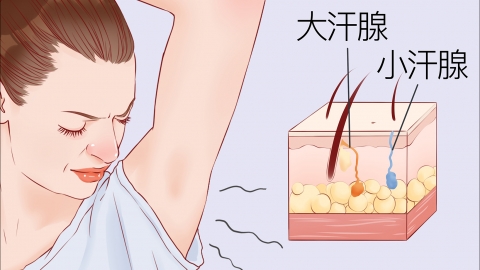How much does surgery for axillary odor (bromhidrosis) cost?
Generally, the reference price for hyperhidrosis surgery ranges from 4,000 to 14,000 yuan per session. Noticeable improvement can be observed 2-4 weeks after surgery, and full recovery usually requires 1-2 months. However, the specific cost can be influenced by various factors, including surgical techniques, anesthesia methods, preoperative examination items, postoperative care plans, and regional price differences. This procedure should be performed at a qualified hospital. Detailed analysis is as follows:
1. Surgical Techniques
Different surgical techniques vary in terms of operational difficulty and cost, resulting in price differences. Traditional axillary sweat gland excision is a routine procedure that doesn't require specialized precision equipment, with a reference price of 4,000-8,000 yuan per session. In contrast, minimally invasive hyperhidrosis removal requires specialized minimally invasive instruments and precise operational techniques, which increases equipment costs and operational complexity, leading to a higher reference price range of 8,000-14,000 yuan per session.
2. Anesthesia Methods
The choice of anesthesia method affects the cost. Local anesthesia is simpler, requires less medication, and has lower costs, with a reference price of approximately 4,000-7,000 yuan per session. If intravenous anesthesia is used, it requires monitoring by a professional anesthesiology team and involves more complex medications, offering higher safety and comfort, which may increase the reference price to 7,000-12,000 yuan per session.

3. Preoperative Examination Items
The number of preoperative examination items affects the overall cost. If only basic tests such as blood routine, coagulation function, and infectious disease screening are performed, the reference price may range from 4,000-6,500 yuan per session. If the patient has underlying conditions such as hypertension or diabetes, additional tests such as liver and kidney function assessments, electrocardiogram (ECG), and blood glucose monitoring are required, increasing the examination costs and raising the reference price to 6,500-11,000 yuan per session.
4. Postoperative Care Plans
Different postoperative care services result in price variations. Basic care services such as wound dressing changes and oral anti-inflammatory medications may cost between 4,000-7,500 yuan per session. If additional personalized services such as wound infrared therapy, analgesic medications, or scar repair treatments are provided, the care costs increase, raising the reference price to 7,500-14,000 yuan per session.
5. Regional Price Differences
Regional economic levels also impact surgical costs. In first-tier cities, where labor costs, rental expenses, and consumable procurement prices are high, the reference price is generally higher, ranging from 7,500-14,000 yuan per session. In contrast, in third- and fourth-tier cities and rural areas, where overall living costs are lower, the total expenses decrease, with reference prices typically ranging from 4,000-7,500 yuan per session.
In daily life, after surgery, it is important to keep the armpit area dry, avoid getting the wound wet, and minimize excessive arm lifting or strenuous physical activities to prevent wound dehiscence. Diet should be light, avoiding spicy and irritating foods as well as seafood such as chili peppers, shrimp, and crab. Additionally, follow the doctor's instructions for timely wound dressing changes and follow-up visits to monitor wound healing and prevent infections.





